CRM Strategies to Drive Dealership Success in 2019
Friday December 14, 2018
Article Highlights
- The first step to creating an efficient CRM process is to select two types of champions—internal advocates and vendor partners. Establishing employee buy-in up front is essential. Without it, they won’t use the system, ultimately rendering the CRM process for sales and leads useless.
- According to the 2017 Cox Automotive Dealership Staffing Study, only 54 percent of employees hired for customer-facing roles reported receiving enough training to do their jobs effectively. That means close to half of your staff may be feeling under-prepared to perform at the highest level possible.
- Ultimately, your CRM is fueled by data. This means the quality of the information you put in dictates the quality of the results you will reap. In other words, missing or inaccurate data can result in missed sales opportunities, poorly targeted and executed marketing campaigns, and lost working time.
As dealerships face increasing competition amid shrinking margins, a strong CRM strategy should be the cornerstone of every dealership. Most dealerships, though, are still struggling to optimize their system.
Many dealerships have invested in a new CRM but aren’t seeing a return on their investment. Some have fallen behind on updating the CRM and haven’t been able to motivate their teams. Others find their sales figures to be largely stagnant. Profitability isn’t meeting expectations, and they just don’t understand why.
In most cases, poor utilization of the CRM and the resulting poor data quality are the underlying reason why many dealerships do not realize their true potential. With 2019 just around the corner, it will be critical for dealerships to take a closer look at how their staff are utilizing the CRM because poor data affects business efficiency and profits, resulting in lost sales and missed marketing opportunities.
So, how do you implement an effective CRM utilization plan to maximize your dealership’s success? Developing and maintaining a proactive CRM culture at your dealership is the key. Adopting the following three core strategies will radically improve your CRM utilization, and your profits.
Create Internal and External CRM Champions
The first step to creating an efficient CRM process is to select two types of champions—internal advocates and vendor partners. Establishing employee buy-in up front is essential. Without it, they won’t use the system, ultimately rendering the CRM process for sales and leads useless.
Appoint internal CRM champions, who can teach, motivate and influence your team. These individuals should be staff members who are excited about and already effectively using your CRM. Your champions will serve as your go-to CRM gurus. They will act as a resource for every day CRM questions. They will work with the management and sales teams to improve processes and train new hires on best practices.
Your internal champion should work closely with your CRM vendor champion and your leadership to ensure the dealership gets the maximum value out of the system. When selecting a vendor, it’s important that they fit with your dealership’s needs and culture. I also recommend having your internal champion participate in the selection process because they will be working closely with the vendor.
Apply Lifelong Training at Every Level
Once you have selected your champions, you’ll need to design a training plan. Remember that continual CRM training is essential to generating long term success. New hires, including salespeople and managers, need detailed onboarding, no matter how much previous dealership experience they may possess.
According to the 2017 Cox Automotive Dealership Staffing Study, only 54 percent of employees hired for customer-facing roles reported receiving enough training to do their jobs effectively. That means close to half of your staff may be feeling under-prepared to perform at the highest level possible. Don’t assume your staff knows how to use the CRM. Train them on proper utilization starting on day one.
By ensuring your employees are thoroughly trained, you will set them up to succeed, provided you follow up and engage them in lifelong training. A good CRM is constantly being updated, and staff will need regular refreshers to keep their CRM skills sharp and adapt to the latest technological advances that will give your business the competitive edge.
Constantly Capture and Update Data
The final step is to create a data capture game plan. Ultimately, your CRM is fueled by data. This means the quality of the information you put in dictates the quality of the results you will reap. In other words, missing or inaccurate data can result in missed sales opportunities, poorly targeted and executed marketing campaigns, and lost working time.
Educate your team on the importance of ensuring they have the most accurate customer contact details at every stage of their interaction, so they can easily follow up and complete the sale. Create accountability by having your internal champion monitor the quality of the customer data inputted by the rest of your team.
Also, check your CRM settings. Some systems, like VinSolutions Connect CRM, offer a lot of customizability and flexibility, so use this to your advantage. For example, consider making an email address essential to opening a new customer record. This will ensure that full contact data is always captured and streamline your sales follow-up.
All this may sound like a big undertaking, but if you implement these strategies, you will see a big return on your investment and position your dealership for success in 2019. If you choose your champions, streamline your CRM tasks by training your team effectively and commit to constantly capturing the most accurate and up-to-date customer data possible, you can take your dealership to the next level. Armed with these tools, you can unleash the full power of your CRM, and you will see a significant increase in productivity, efficiency and profitability.
A version of this article originally appeared in Digital Dealer.

